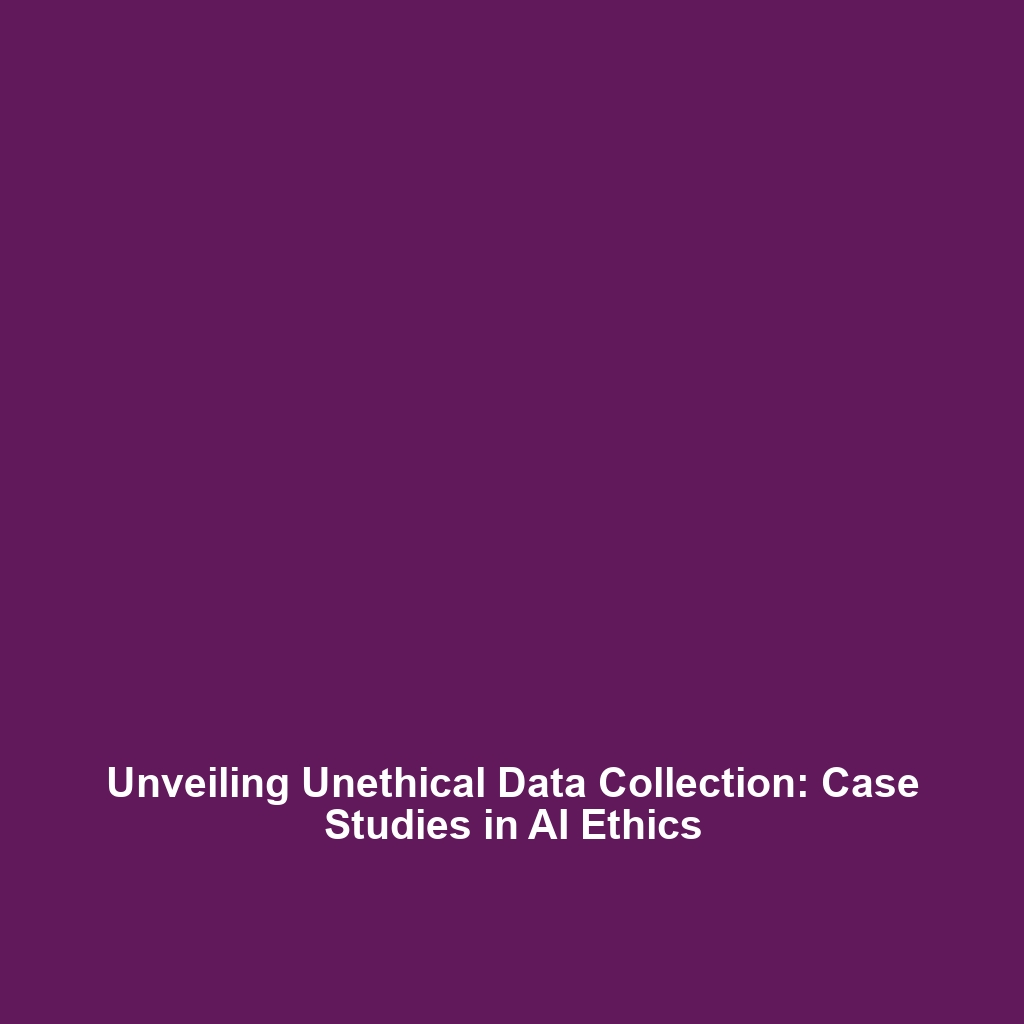Unethical Data Collection Practices: Case Studies and AI Ethics
Introduction
In the digital age, the ethical concerns surrounding data collection have become increasingly prominent. Case studies of unethical data collection practices, such as the infamous Cambridge Analytica scandal, highlight the significant implications for individuals and societies at large. Understanding these cases is critical within the broader context of AI Ethics, as they raise essential questions about privacy, consent, and the responsibility of organizations in handling user data. This article will explore key concepts, applications, challenges, and future research opportunities regarding unethical data collection practices.
Key Concepts
Principles of Ethical Data Collection
At the heart of AI Ethics lies the principle of ethical data usage, which calls for transparency, accountability, and respect for individuals’ privacy. Understanding how case studies like Cambridge Analytica violate these principles is vital for ensuring the responsible application of AI technologies. The key concepts in this domain include:
- Informed Consent: Users must be fully aware of how their data will be used.
- Data Minimization: Only data essential for a specific purpose should be collected.
- Transparency: Organizations should openly communicate their data practices.
Applications and Real-World Uses
Understanding how unethical data collection practices have been applied in real-world scenarios sheds light on their impact on AI Ethics. The Cambridge Analytica scandal serves as a prominent example of how data is misused for political manipulation, illustrating the dangers of poorly regulated data practices. Key applications include:
- Behavioral Targeting: Using harvested data to create tailored political advertisements.
- Micro-targeting: Influencing voters through personalized messaging based on their online behaviors.
Current Challenges
The study of unethical data collection practices presents several challenges within the context of AI Ethics. Some of the most pressing issues include:
- Difficulty in tracking and regulating data usage across multiple platforms.
- Variations in global data protection laws and regulations.
- Public apathy towards data privacy, resulting in less scrutiny over unethical practices.
Future Research and Innovations
As technology rapidly evolves, so do the implications of unethical data collection practices on AI Ethics. Future research is focusing on innovative methods to enhance data privacy and tackle unethical data usage. Key areas of interest include:
- Blockchain Technology: Leveraging blockchain for secure and transparent data transactions.
- AI-driven Compliance Tools: Developing smart algorithms that can enforce data protection regulations.
Conclusion
Case studies of unethical data collection practices, exemplified by the Cambridge Analytica scandal, underline the importance of ethical considerations in AI technologies. These incidents are critical in prompting discussions around data privacy, user consent, and corporate accountability. As the field of AI Ethics continues to evolve, ongoing research and innovative solutions will be essential in addressing the challenges posed by unethical practices. To explore more on AI Ethics and its implications, visit our related articles on AI Ethics Overview and Data Privacy Measures.
